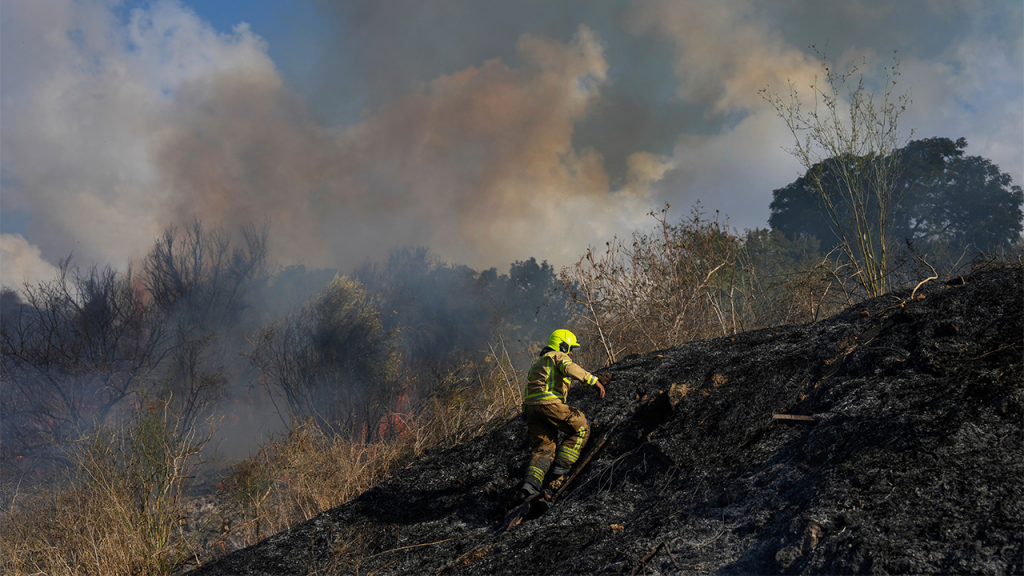A long-range missile was fired from Yemen and landed in central Israel early on Sunday, according to the Israeli military. Air raid sirens were triggered in the region, and local media shared images of what appeared to be a fragment from the missile or an interceptor that landed on a train station in Modiin. Fortunately, there were no casualties or damages reported from the missile, but authorities did observe a fire in a rural area. In addition to the Yemen attack, around 40 projectiles were fired from Lebanon on the same day, with some being intercepted and others falling in open areas, according to the Israeli military.
No group immediately claimed responsibility for the missile strike from Yemen. While local media reported explosions resulting from the missile launch, the Israeli military later clarified that the sounds were from interceptors. The Iran-backed Houthi rebels in Yemen have been known to repeatedly fire drones and missiles towards Israel since the conflict between Israel and Hamas in Gaza began. Most of these attacks have been intercepted over the Red Sea, and no injuries were reported from the recent projectiles. Israel Fire and Rescue Services are currently working to extinguish fires caused by the fallen projectiles in open areas.
Iran and its financed terror groups have been targeting Israeli and U.S. interests over the past year, leading to retaliatory strikes from Israel and its Western allies. These attacks have been in support of Palestinians, with Iran backing terror groups like Hamas, the Houthis, and Lebanon’s Hezbollah. The ongoing conflict has resulted in frequent exchanges of fire between Israel and these groups. In July, an Iranian-made drone launched by the Houthis hit Tel Aviv, killing one person and injuring 10 others. Israel responded to this attack by launching airstrikes on Houthi-held areas in Yemen, further escalating tensions in the region.
The Houthis have also targeted commercial shipping in the Red Sea, claiming to be imposing a blockade on Israel in solidarity with the Palestinians. However, many of the ships attacked have no connection to Israel. The conflict has resulted in tens of thousands of people being displaced on both sides of the Israel-Lebanon border. The situation remains tense, with frequent clashes and attacks occurring between various groups in the region. The ongoing conflict has continued to escalate, with no clear resolution in sight. The involvement of Iran and its allies has further complicated the situation, contributing to the cycle of violence and retaliation that has gripped the region.
The attacks from Yemen and Lebanon on Israel are part of a broader pattern of conflict in the region, with various groups vying for power and influence. The support of Iran and its allies for terror groups like Hamas and the Houthis has added fuel to the fire, resulting in a cycle of violence and retaliation. The situation remains volatile, with no clear end in sight to the conflict between Israel and these groups. It is crucial for all parties involved to work towards a peaceful resolution to prevent further escalation and loss of life. The international community must also play a role in facilitating dialogue and negotiations to bring an end to the ongoing conflict and ensure stability in the region.


